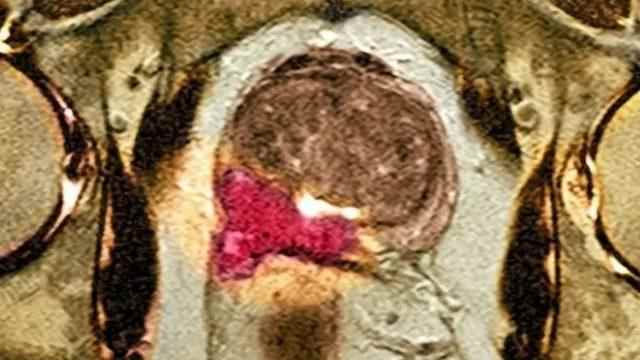It is too early to tell whether the bacteria cause cancer or just an additional indicator.
The University of East Anglia team, which conducted the research in England, wants to see if clearing the infection with antibiotics will prevent bad tumors. The team therefore plans to conduct further research.
Bacterial infection is known to play a role in the development of other cancers. for example Helicobacter pylori Bacteria named can trigger stomach cancer, but it is possible to get rid of this risk with antibiotic treatment.
PROSTATE GROWTH
Prostate cancer does not always involve a risk of death; some tumors grow too slowly to cause any problems and can be safely left alone and under surveillance.
But for men with aggressive, fast-growing, and damaging tumors, prompt diagnosis and treatment is essential.
Currently used tests, such as a blood test for prostate-specific antigen (PSA) detection and biopsy, cannot always predict which cancers will be harmful.
In the latest study, published in the journal European Urology Oncology, researchers examined more than 600 patients with and without prostate cancer to evaluate how helpful the urine bacteria test was.
They identified five types of bacteria common in tissue and urine samples from men whose cancers had become aggressive.
NEW BACTERIA
These were all types of bacteria that could grow without oxygen. Some were brand new species that had never been detected before.
From the research team, Dr. “We don’t yet know how people get these bacteria, whether they cause cancer or whether a weak immune response allows the bacteria to grow,” Rachel Hurst said.
“However, we hope that our findings and future work may lead to new treatment options that can slow or prevent the development of aggressive prostate cancer. Our study may also lay the groundwork for new tests that use bacteria to determine the most effective treatment specific to each man’s cancer.”
The researcher Prof. Colin Cooper said that he was very confident in the validity of the findings, and that they took strict precautions to eliminate the possibility of contamination while conducting the laboratory studies.
Cooper noted that some of these bacteria may be producing hormones that lead to the development of aggressive tumors.
From the Cancer Research Foundation UK, Dr. “About four in 10 cancers in the UK are linked to known risk factors such as smoking and obesity. But there are other risk factors, such as cancer-causing bacteria, and we are just beginning to identify them,” said Sam Godfrey.
“More work is needed to determine how these bacteria contribute to prostate cancer growth, but this research could lead to new screening and prevention methods that will help reduce the impact of these cancers on society,” Godfrey said.
